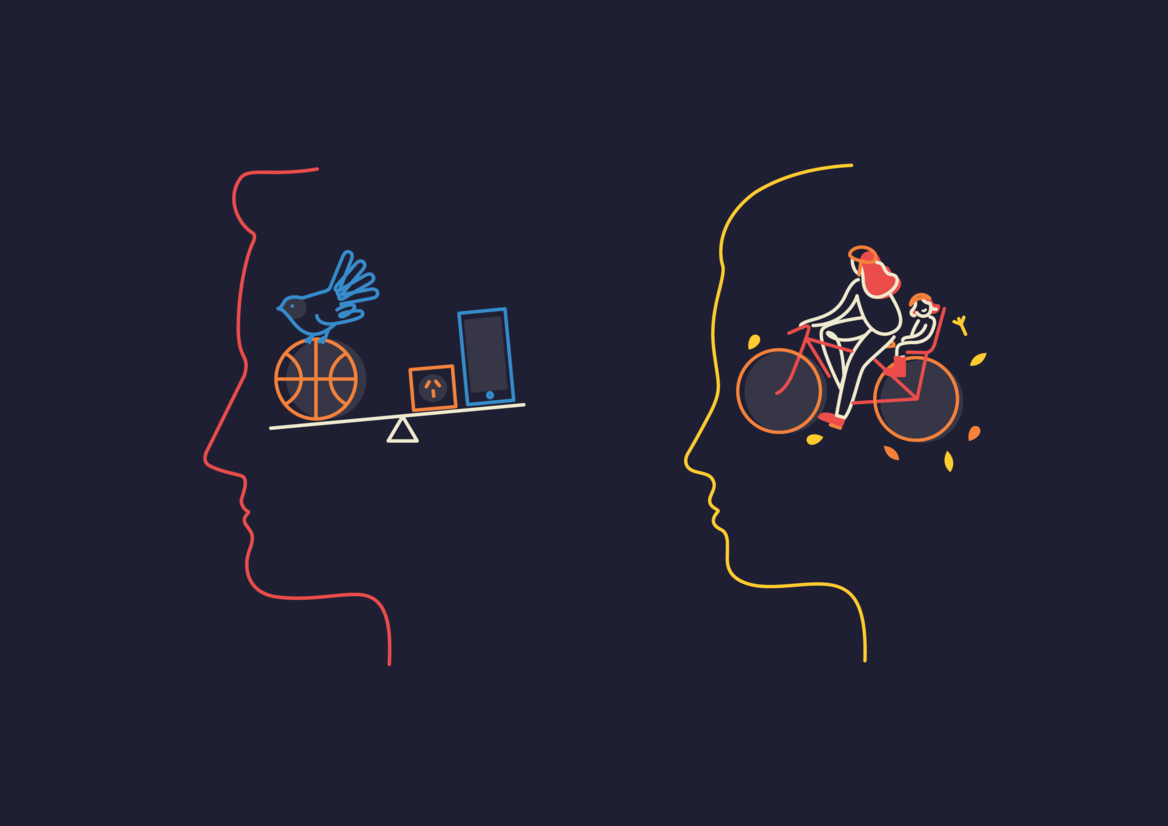
The indisputable truths that the Internet is a vast repository of information, has helped create millions of startups, or connects the world like never before. But when it comes to mental development, the Internet turns into a double-edged sword.
You ask why?
According to a study published in Huffpost, excessive exposure to the internet causes mental problems in our brains such as:
It makes it difficult to remember.
It creates an addictive effect.
It triggers feelings of jealousy and loneliness. (FOMO, feeling like I’m missing something)
It increases the risk of self-harm, especially among young people.
It blunts the sense of empathy.
It causes chronic sleep problems.
-Restricts analytical actions such as reflection and analysis.
It creates an addictive effect.
It triggers feelings of jealousy and loneliness. (FOMO, feeling like I’m missing something)
It increases the risk of self-harm, especially among young people.
It blunts the sense of empathy.
It causes chronic sleep problems.
-Restricts analytical actions such as reflection and analysis.
Such side effects of the internet are pushing some psychologists to recommend ‘digital detox’ methods to their patients. The aim here is to reset the brain and restore its normal functions.
The results of the digital purification experiment conducted by a team of neurologists on 35 successful entrepreneurs are quite interesting. The experiment includes observations of a group of neurologists on a trip to the Moracan deserts, where they have no internet and smart device access, mingling with a team of CEOs, influencers and entrepreneurs. The developments observed as a result of the experiment are as follows:
1) Increased Eye Contact

Participants began to take care of their surroundings instead of turning their attention to their smart devices, and as a result, it became easier to establish friendships, which deepened personal relationships.
2) Improved Body Posture

It has been observed that the shoulders are carried back and the head is aligned with their spine, that is, they get a habit of a healthier and upright body posture. It also made them seem more approachable.
3) Improved Social Relationships

Since the participants did not have e-mail, social media interaction and internet access, they were included in the conversations where they would share more personal experiences and anecdotes. This reinforced the experience of being with others.
4) Details About Others

Because they were in a situation where they had to live in the moment, their minds could literally be there during conversations, and therefore they remembered more details about others. These are the details that are caught in the flood of online information that we are exposed to daily.
5) Regular Sleep Pattern

Most smart devices emit blue light, which disrupts the brain’s circadian rhythm, that is, the 24-hour rhythm that the brain adjusts to sleep accordingly, and this prevents the body from releasing melatonin (a sleep hormone secreted at night) by mistaking that moment for the day. Matthew Walker, Why We Sleep? The author of the book (Why We Sleep?) suggests that the two to three hours before sleep should be spent without exposure to such blue light (blue-light-free) to avoid such manipulation of the brain.
6) Increased Self-Esteem

Participants who were not exposed to the constant distractions created by the Internet began to think more deeply and were more prone to making vital decisions that they had postponed. It was also among those who were observed that they believed that they had the willpower necessary to implement these decisions, that is, they started to trust themselves more.
It should be noted that the effects listed here cover a period of several days. However, there is a lot of research showing that a 24-hour digital cleanse has significant positive effects on the functioning of the brain. Ideally, it is recommended to do such a detox with your family and friends. He believes that some people’s technology-free experience has had a truly life-changing impact.
…
















